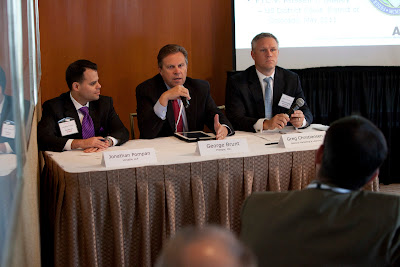ERSP is an investigative unit of the advertising industry’s system of self-regulation and is administered by the Council of Better Business Bureaus. The marketer’s advertising came to the attention of ERSP pursuant to its ongoing monitoring program.
ERSP reviewed online advertising for the Project Payday system and identified several claims for review, including:
- "Who Else Wants To Learn How To Earn A Quick $44 to $154 Any Time You Have 1-2 Hours to Spare…”
- “Some students admitted to working less than 3 hours total, and still made more than $200.”
- “If you follow the simple steps of our Fast First Fifty program and don’t make $50, I will pay you $100.”
- “You show up, you do the work, you get paid.”
- "Project Payday is PERFECT For Stay-At-Home Moms, Full-Time Employees or Students, Retirees, And People Who Just Want to Stay Around the House!”
- “Its fun, super easy, and you can start making money in less than 2 hours.”
- “We’ve been the industry leaders in IFW training since 2006”
- “$4,915 – not bad after just 3 months eh? I owe you big time. Really.” [Matt O’Connor, Palatine, IL]
Following its review, ERSP recommended that the marketer discontinue
using the disclosure at issue (“*Results stated in testimonials and earnings
claims are 100% truthful and accurate, but may not be ‘typical’”) in
conjunction with testimonials and earnings claims that indicate consumers can
make large sums of money quickly and easily.
In addition, ERSP recommended that in future advertising, the marketer
clearly and conspicuously disclose the amount of money that consumers can
generally expect to earn, based upon reliable program usage data Project Payday
has received from consumers.
ERSP noted in it decision its concern that certain claims at issue implied
that product users would be able to earn the specific sums communicated with
little effort or computer knowledge and recommended that the marketer
discontinue such claims.
Finally, ERSP recognized the marketer’s voluntary discontinuance of certain
claims, such as the “no obligation”
language, the assertion that “Every single one of my test students made money
within 30 days,” and the statement “Make $1,000 a day starting next week.”
The company, in its marketer’s statement, said it would take ERSP’s
recommendations into account in future advertising.


